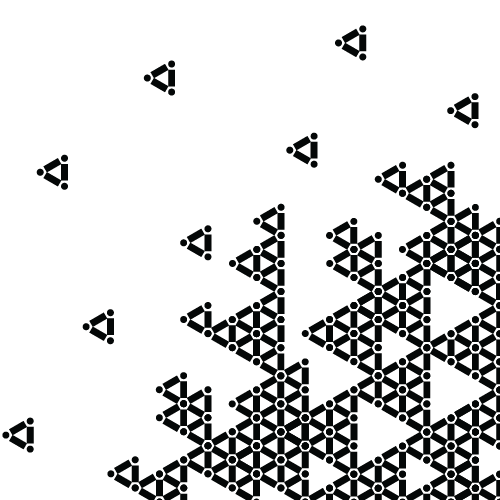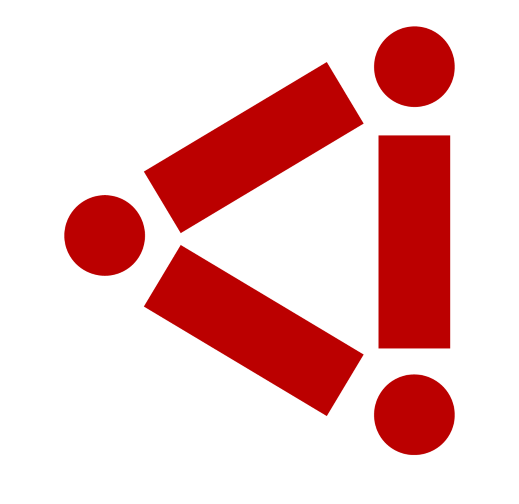Online Student Resources
Welcome, online certificate and MIIPS students!
You may have signed up for our complete online degree, one certificate, or even one course. Regardless of your engagement, we want you to have a community of resources at your fingertips.
Refer to this page to find information about academic policies, technology resources, the rotational certificate schedule, and advising resources. These resources and guidelines are relevant and essential to your success as an online student.

Spring 2024 Certificates
Product Design Innovation
Course 1: 49-600 - Introduction to Design Innovation
Professor: TBD
Day/Time: TBD
Course Highlights:
- Learn methods to understand a breadth of user needs
- Gain skills in techniques and applications to create tangible products and product features
- Hone skills needed to visualize and represent concepts efficiently
- Generate a range of solutions via methods of early prototyping and testing
Course Description:
This course is an introduction to design principles for product development and also instructs students in techniques and applications for tangible products. During the course, students will learn about the design process and the steps designers take from an understanding of user needs to the creation of a fully considered solution that meets those needs and delights the user. Building on the general principles introduced in the course, the course will give students the opportunity to apply their learning in the context of tangible products (research, sketching, model making, user testing and presentation). Students experience the use of traditional design skills (drawing, mockups and model making) in the visualization and representation of design concepts and solutions. This course not only introduces design innovation, but also provides training in a physical product context so that students can hone skills and techniques needed to visualize and represent product concepts efficiently and accurately.
The relationship among design, product development, and business is explored with class projects, readings, discussions, and the analysis of artifacts and process. Through case histories, lectures and a variety of hands-on exercises, students are exposed to design thinking and practice.
Course 2: 49-601 - Innovation of Services & Experiences
Professor: TBD
Day/Time: TBD
Course Highlights:
- Learn techniques to design services and experiences, easily distinguishing and shifting between different perspectives on the same design problem space
- Leverage service and experience innovation frameworks to explain how an offering unfolds for people
- Design holistic "product" offerings that span UI/UX, physical products, and human activity
- Gain fluency to articulate offerings that are made up of systems of products, services and other components
Course Description:
This course will define and study services, experiences, and related systems. Students will also learn the basics of designing services and experiences. Innovators who focus on these areas create new offerings for businesses with a primary focus on the quality of the human interactions and experiences that are often engrained in the heart of functional and/or tangible products. Essentially, this course will push students to consider holistic "product" offerings that span UI/UX, physical products, and human activity. In this course, students will first study the nature of services and experiences and then work in small project teams to analyze leading design solutions as well as to create new ones. Service and experience design frameworks will also be used both for the analysis of existing offerings as well as to propose innovative solutions.
The learning will take place via lectures, studio projects, and verbal and written exposition. Students will be working in familiar and unfamiliar forms including concepts for products, documents, events, spaces, activities, scripts, and software. Classwork will be done individually and in teams. By the end of this course, students should be able to do the following: Easily distinguish and shift between different perspectives on the same design problem space, leverage service, and experience innovation frameworks to explain how an offering unfolds for people, speak articulately about offerings that are made up of systems of products, services, and other components.
Technology for Product Management
Course 1: 49-602 - Designing for Production and Sustainability
Professor: TBD
Day/Time: TBD
Course Highlights:
- Learn principles and philosophies of engineering design
- Understand the impact and implications of design decisions on later stage product development steps
- Incorporate the distribution and life cycle of a product into early product design
- Study the fundamental concepts of sustainable design and the impacts it has on product development and design decisions
Course Description:
This course will teach the basic principles and philosophies of engineering design, with emphasis on mechanical engineering, due to the broad scope of applications of mechanical engineering which include but are not limited to stress analysis and fracture, heat transfer, kinematics and systems packaging. Recognizing that design is a first step in a sequence of later decisions and steps (development, manufacture, distribution and life cycle of a product), this course will look at the influence of materials, manufacturing and other downstream decisions/actions on the overall design of a product. Some of the downstream influences that will be explored are decisions and actions that take place prior to the sale of the product: material selection, manufacturing processes, assembly, robustness and quality, platform design, product costing and safety.
However, what we design and how we develop it also impacts our environment for years to come, so importantly this course will also cover various aspects of sustainable design from a product life cycle perspective. Thus, students will be exposed to the fundamental concepts of Design for "X" and specifically the impact that DfM (Design for Manufacturing) and DfA (Design for aAssembly) have on product development and how they affect design decisions. Students will also be exposed to the fundamental concepts of Sustainable Design (also known as Design for Sustainability — DfS, EcoDesign, Sustainability Engineering, LCA and others) and specifically the impact that DfS has on product development and how it affects design decisions. This class includes lectures and lab activities.
Course 2: 49-603 - Cyber-Physical Product Design
Professor: TBD
Day/Time: TBD
Course Highlights:
- Learn the capabilities and limitations of current technologies such as AI, data science and interactive connected products
- Learn to frame a problem, choose data sources and needed sensors and perform exploratory data analysis
- Practice basic modeling and prototyping, then communicate the results
- Complete a final project incorporating elements of connected products and smart systems
Course Description:
Driven by the combination of increased access to data, local data storage, computational power, interconnectivity and improved algorithms, mainstream technologies increasingly incorporate sensing (IoT) and data science (AI) "smarts." As examples, thermostats, locks, power sockets and lights are being imbued with sensors and connectivity. There is great potential to layer in machine learning, natural language and speech processing, expert systems, robotics and vision. Historically, early applications of these capabilities were designed to operate on their own, on very narrow tasks, based on pre-programmed knowledge. Today, we have the ability to design human-computer systems in which both human and computers act intelligently, adapt to the world and learn from experience, improving their performance over time.
After an introduction of some basic concepts and techniques in AI, data science and interactive connected products, the course illustrates both the potential and current limitations of these techniques with examples from a variety of applications. Topics explored will include awareness, real-time sensing and communication, embedded intelligence and designing experiences for the Internet of Things. We will also spend some time on understanding the strengths and weaknesses of human decision-making and learning, specifically in combination with AI systems that would be resident in product applications.
Students will be introduced to technologies and AI algorithms through a series of hands-on exercises, collaborative projects, in-depth discussions and instructor-led tutorials. Exercises will include close examination of the inputs and outputs of various technologies as well as with analysis of the gathered information, with the goal of learning to select appropriate technologies and analyses for a given problem and anticipated design implications. Students will also complete a final project that takes a project from start to finish that incorporates elements of connected products and smart systems (framing the problem, choosing data sources and needed sensors, exploratory data analysis, basic modeling, basic prototyping, communicating results). The course is designed such that students can complete this course with only a basic familiarity with statistics, without any knowledge of programming, electronics or systems.
Upcoming Certificate Schedule
Spring 2025
Important Dates:
- Registration Form Opens: TBD
- SIO Registration Begins: TBD
- Classes Begin: mid-January
- Product Design Innovation
- Technology for Product Mgmt
Instructors, Days & Times are all TBD at the moment for Spring 2025
Register for Upcoming Courses
Spring 2024
iii Online Program Registration Form
Explore More iii Online Offerings
Stories from the Community
Meet Susanna Zlotnikov,
iii Online Program Director
Susanna is a qualitative design researcher and educator with expertise in analyzing and designing for complex workflows. Currently, she is an assistant teaching professor with the Integrated Innovation Institute and director for the iii Online Program at Carnegie Mellon University.
She has taught diverse students a variety of subjects for over a decade (Hebrew, math, Pilates, design).
At the Integrated Innovation Institute, Susanna teaches courses focused on using service design frameworks and tools to innovate offerings to customers.
Susanna earned her Master’s degree in design from Carnegie Mellon University’s School of Design in 2015 and BA in Political Science from the University of Pittsburgh in 2011.
With this background, Susanna is uniquely positioned to navigate the social and technical contexts that shape services and experiences.
Email Susanna:
susannaz@andrew.dos5.net
Schedule a 1:1 Appointment
Schedule an Appointment with Susanna
In-Person and Zoom appointments available
Meet Kristin Lavery,
iii Online Program Manager
Kristin supports the Master of Integrated Innovation for Products and Services (MIIPS) Online and the Stackable Online Certificates programs as Online Program Manager. She coordinates multiple aspects of online education needs, including program development and logistics, communications, and faculty support, along with student engagement and registration. In her role she works closely with the CMUiii team, campus partners and external vendors.
Prior to joining the CMUiii in October of 2022, Kristin served as the Assistant Director and Business Manager for the CMU Leonard Gelfand Center for Service Learning and Outreach where she focused her time on operations, program and project management, and educational outreach. Over the past few years, she’s been pursuing coursework in programming, design, and UX.
Kristin has been a Pittsburgher since 2003 and in her free time enjoys walking her dogs, dabbling in crafts, working on renovation projects, singing karaoke, bowling or playing PSL kickball.
Email Kristin:
klavery@andrew.dos5.net
Schedule a 1:1 Appointment
Schedule an Appointment with Kristin
Zoom appointments available


